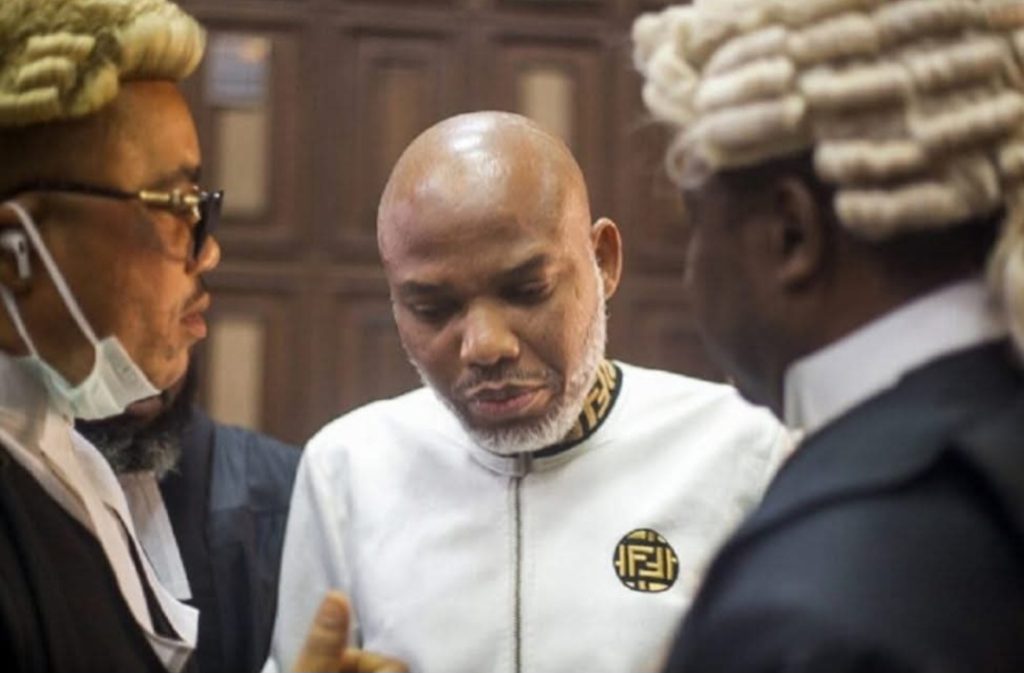
Daniel Otera
The Indigenous People of Biafra (IPOB) has rejected the Federal High Court’s judgment of Thursday, November 21, sentencing its leader, Nnamdi Kanu, to life imprisonment on seven terrorism-related charges.
In a statement on Friday, November 22, IPOB spokesman Emma Powerful insisted that Kanu “committed no offence known to Nigerian law” and described his advocacy for self-determination as a protected right under international conventions.
Powerful faulted the ruling by Justice James Omotosho, accusing the judge of ignoring Section 36(12) of the 1999 Constitution, which provides that a person cannot be convicted of an offence unless it is defined in written law.
“The only thing the Federal Government continues to criminalise is self-determination, a right guaranteed under Article 20 of the African Charter on Human and Peoples’ Rights, Article 1 of the International Covenant on Civil and Political Rights, and Article 1 of the International Covenant on Economic, Social and Cultural Rights,” the statement said.
IPOB also argued that insecurity in the South-East escalated while Kanu was in custody of the Department of State Services and that incidents recorded during that period could not be attributed to him.
“It was Mazi Nnamdi Kanu who was attacked by the Nigerian military during ‘Operation Python Dance.’ It was IPOB family members who were massacred at Nkpor, Aba, Onitsha, Emene, and other locations. Not one government officer or soldier has been held accountable for these atrocities. Yet the same system now seeks to convict the victim,” the group said.
The statement described the court’s ruling as “unconstitutional” and accused Justice Omotosho of relying on repealed provisions. IPOB said it plans to release a detailed response in the coming days and will engage international bodies on judicial and human-rights concerns. The group reiterated its demand for a United Nations–supervised referendum.
Justice Omotosho had delivered the judgment in Kanu’s absence, ruling that the IPOB leader’s broadcasts on Radio Biafra and his directives enforcing sit-at-home orders amounted to terrorism. The court also cited Kanu’s alleged involvement in attacks on security personnel by the Eastern Security Network as part of the prosecution’s evidence.
